Supplements
Horses – Ponies – Dogs – Cats
See also: www.naturalfeeding.co.uk
 Particularly applicable to the horse world but also prevalent for dogs and cats, there is a massive array of products vying for our attention and for our money. This massive market has built up from nowhere and is based on no practical or logical footing. Somehow, marketing and commercialism have overtaken common sense, leading many to believe that their horse (or dog or cat) has definitive need of various commercial (and highly profitable) products.
Particularly applicable to the horse world but also prevalent for dogs and cats, there is a massive array of products vying for our attention and for our money. This massive market has built up from nowhere and is based on no practical or logical footing. Somehow, marketing and commercialism have overtaken common sense, leading many to believe that their horse (or dog or cat) has definitive need of various commercial (and highly profitable) products.
Many of these products are unnecessary, let alone wholly unsuitable. Many contain synthetic vitamins, artificial colour, artificial flavour, sugar, cereal ‘filler', genetically-modified or patent yeast cultures etc. Some horse products even contain animal-derived material. There are, of course, some sensible products out there but they too are marketed rather too vigorously, there being no need for them in most cases.
Healthy animals need a healthy diet to maintain health.
Sick, injured or ill animals need a healthy diet to optimise healing capability.
Performance animals need a healthy diet for optimum performance and stamina.
Young animals need a healthy diet for optimum growth and development.
Older animals need a healthy diet to preserve their faculties and energy levels.
If a horse is fed a good (and natural) diet, there should be no need for supplements except for those providing some good general nutrition (e.g. a general pasture herb mix, perhaps brewers yeast, perhaps seaweed, perhaps garlic and perhaps pure electrolytes* for horses in extreme activity). Probiotic (difficult to source a good one for horses*) may be necessary, after bad or unsuitable diets, antibiotic treatment or long-term illness. It could of course be argued that unsuitable modern horse feeds and pet foods have created the current market for supplements, as we try desperately to put right some of the health issues that arise from long-term incorrect feeding. Similar principles apply to dogs and cats.
If there is perceived to be a medical or nutritional need for any particular supplement, it should only be purchased and fed as part of an integrated medical and dietary strategy, rather than piecemeal (i.e. a holistic view should be taken, to ensure that it is in the horse's best interests). For instance, a natural salt lick is often appreciated by horses but beware some of the combined mineral licks.
This recommendation to think in a whole (holistic) context when buying supplements applies equally to dogs and cats.
See also: Nutrition : Products : Herbs : Advertisers : Diets
*Inadequate formulations and unwanted ingredients abound. We can advise clients to help them to source good probiotics or electrolytes.
